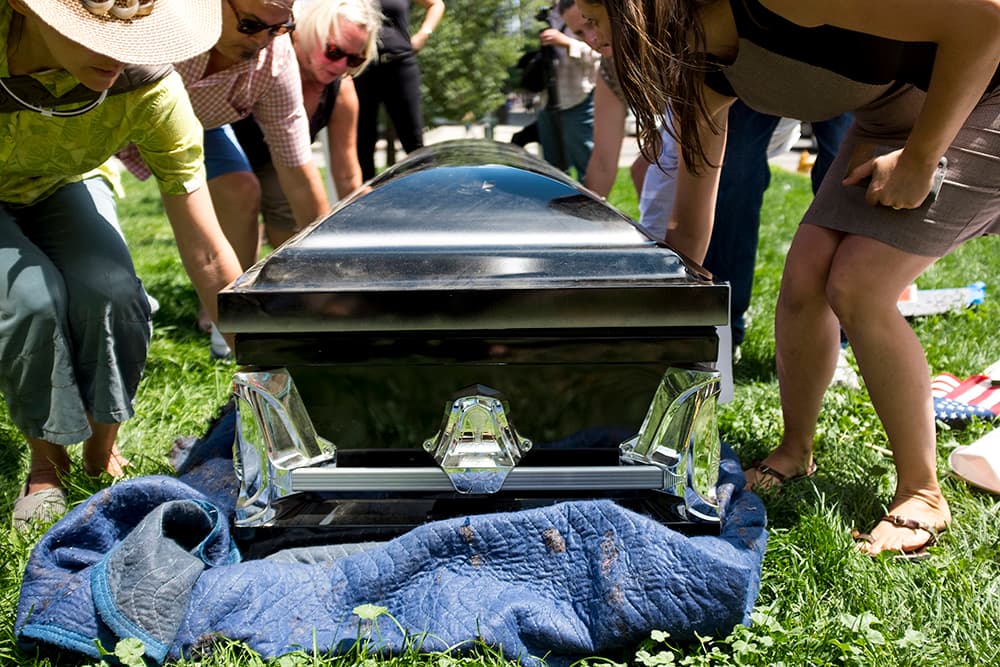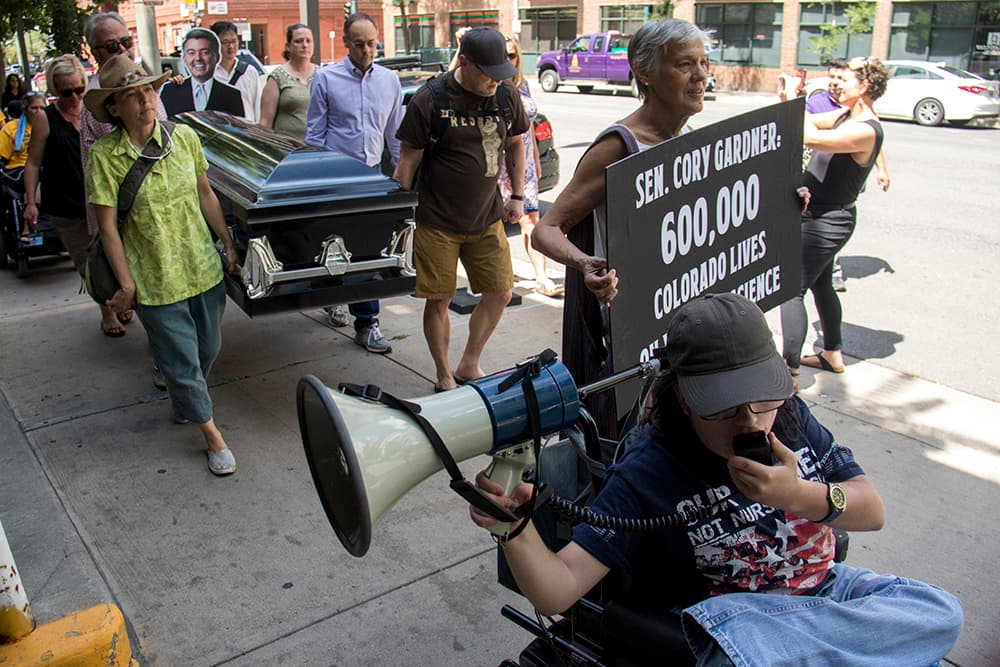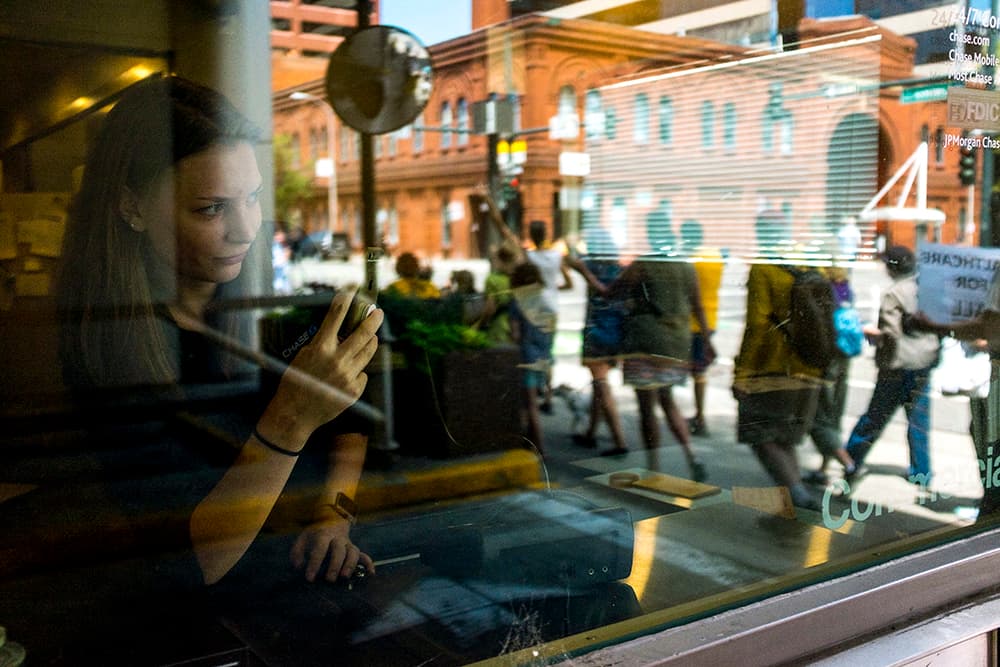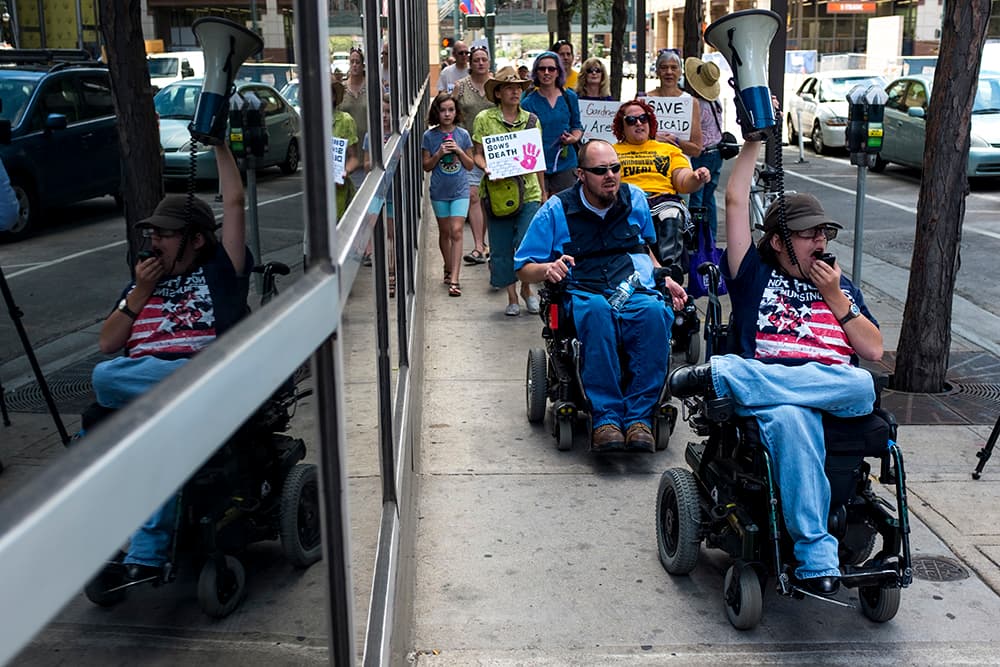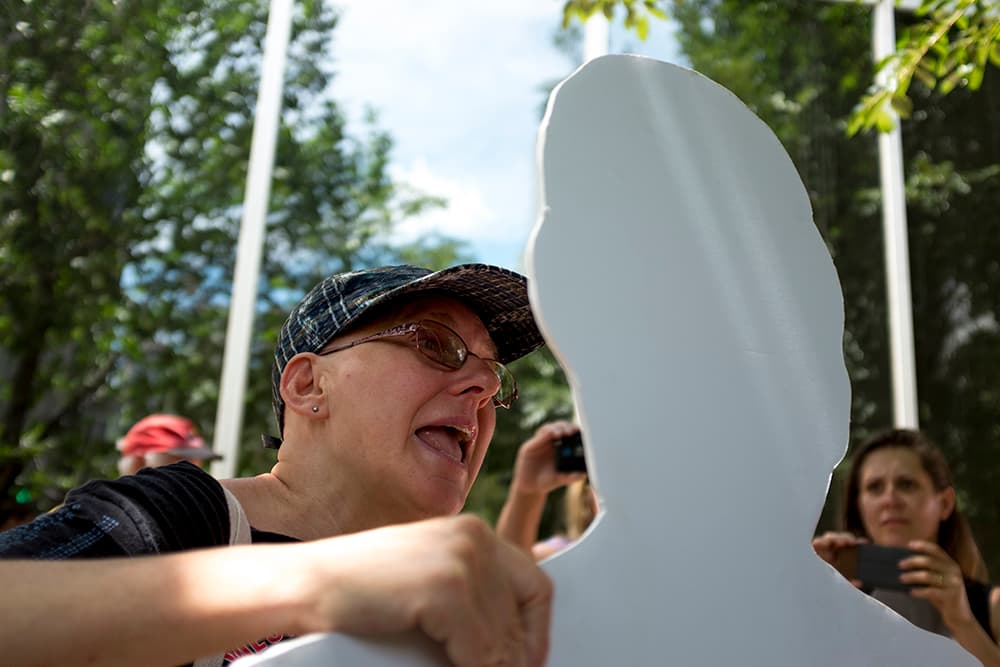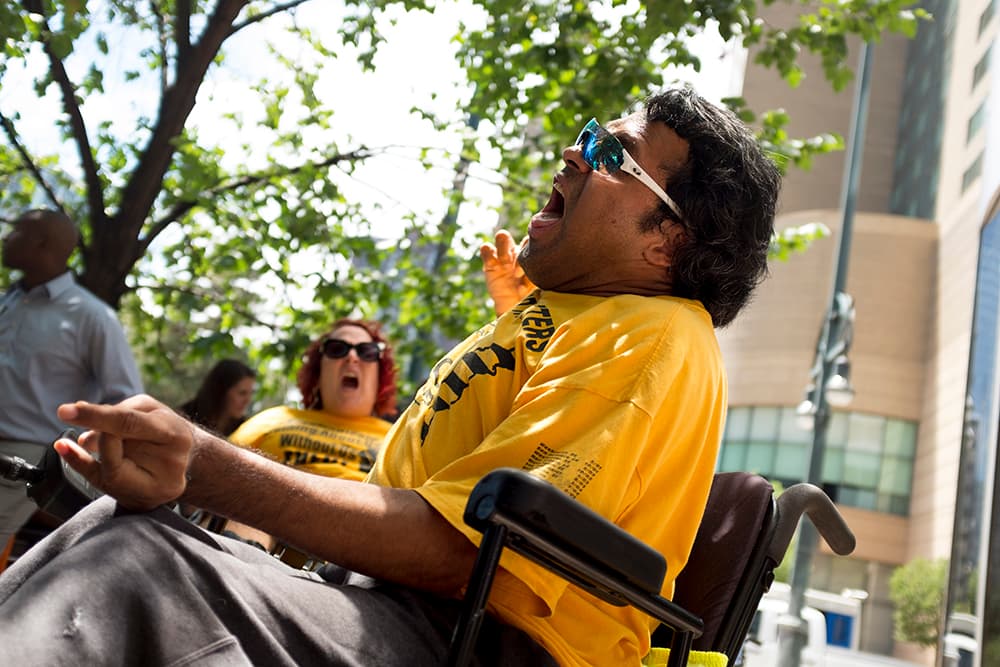
After weeks of hedging about his position on various Republican health care plans, Sen. Cory Gardner voted yes three times -- yes on a key procedural vote to start debate, yes on the Better Care Reconciliation Act and yes on a straight repeal of the Affordable Care Act. Those bills failed as other Republicans joined Democrats to vote no.
As Senate Republicans now turn to a so-called "Skinny Repeal" that would roll back the individual mandate while keeping other aspects of Obamacare, the protesters who have dogged Gardner for weeks returned to his offices, including one in downtown Denver.
(Update: Gardner voted yes on the Skinny Repeal. It lost by just one vote, as Republicans Susan Collins of Maine, Lisa Murkowski of Alaska and John McCain of Arizona voted no.)
Activists like the disabled members of ADAPT -- who occupied Sen. Cory Gardner's office for two days in late June -- fear changes to the health care law will lead to cuts in Medicaid programs that allow them to live independent lives.
Today they carried a coffin and a cutout of Senator Gardner around the building containing his office by Skyline Park, hoping to convey their fears of the Skinny or any other Affordable Care Act repeal.

As they circled the building multiple times, activists yelled, "Kill the bill! Don't kill us!"
The protest was not particularly large in size, but it was loud and another action in a string of public condemnations of the Senate's repeal effort. Just last weekend, activists interrupted Sen. Gardner's speech at the Western Conservative Summit. It was the first time protesters were in the same room as the senator since they began publicly requesting an audience with him through public protests.
"We’re at the 11th hour," said protester Sarah Nelson. "They haven’t considered any of the people that this involves. Our healthcare could be gone, that means our lives could be gone...We’ll be relentless until they work with us.”

Julie Reiskin, member of ADAPT and executive director of the Colorado Cross-Disability Coalition, said she's afraid a Medicaid rollback could be tacked onto the Skinny Repeal if it passes. But, she said, it's the entire process that has brought her out to protest multiple times in recent weeks.
"This is a really dangerous way to make public policy," she said. "Not only do we not know what's in the bills, but our representatives don't know."
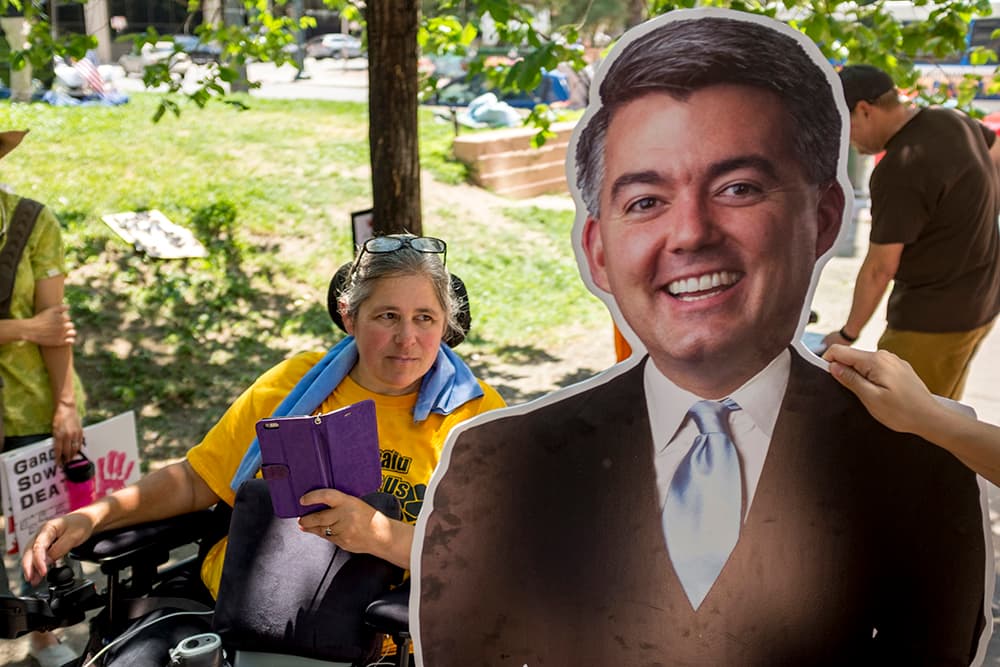
The sheer speed with which Senate Republicans have introduced new legislation has been a blur, Reiskin said. The fact that a reporter has to ask how she's able to keep track of things in the first place, she said, is a problem.
"A normal democratic process involves everyone reading the bill and then having discussions," she said. "This is not how to make public policy."
